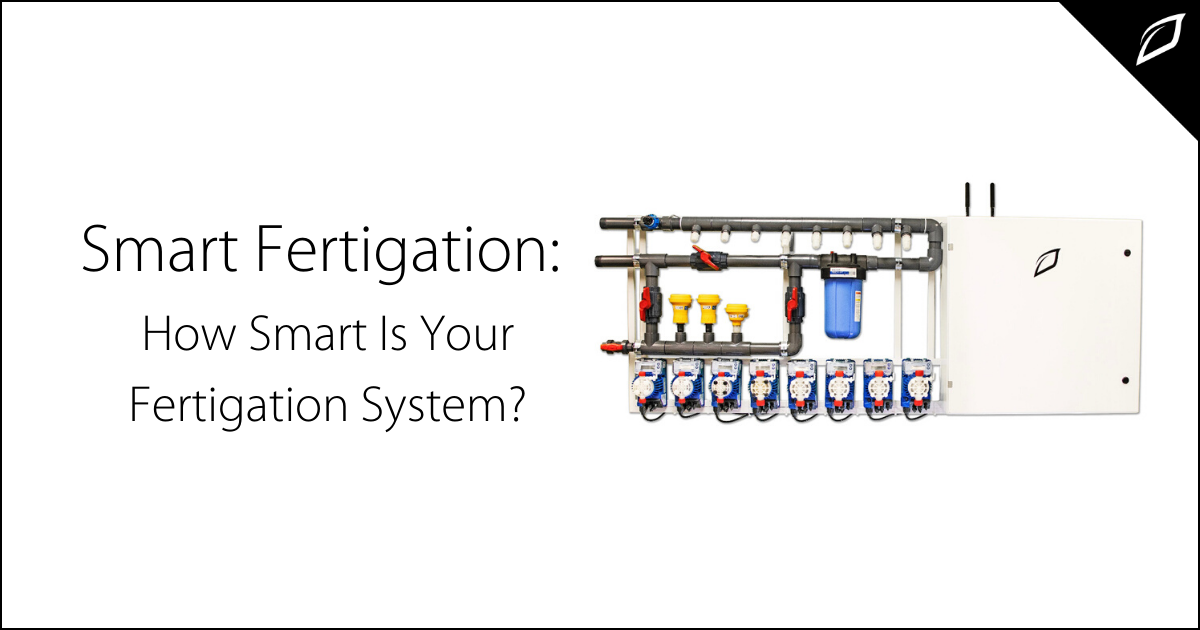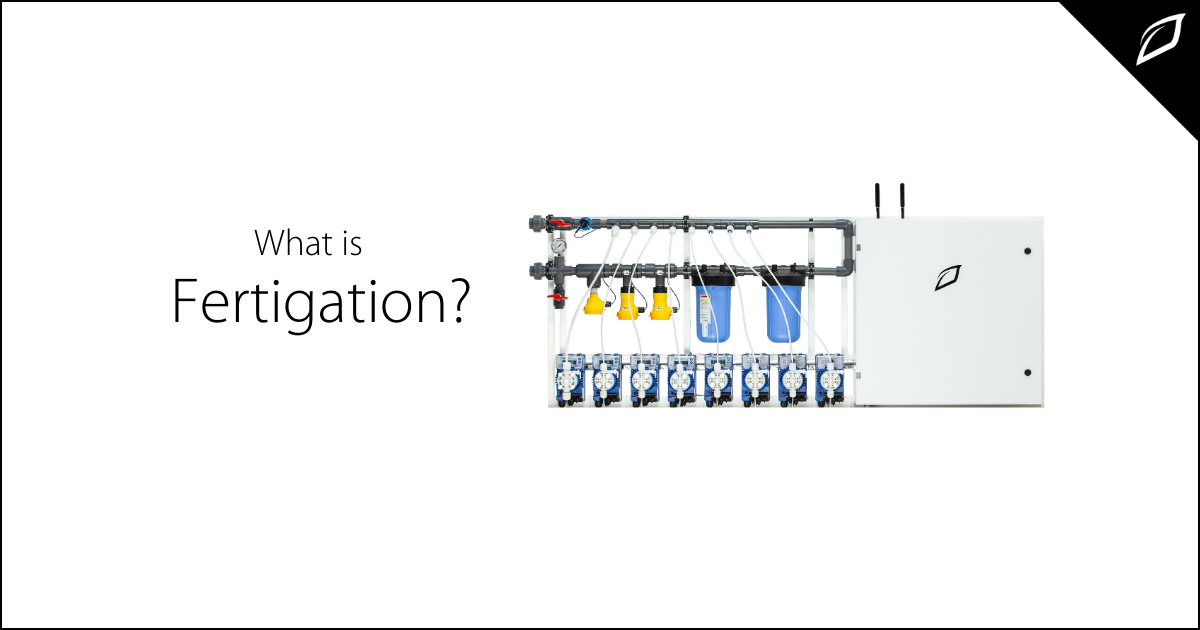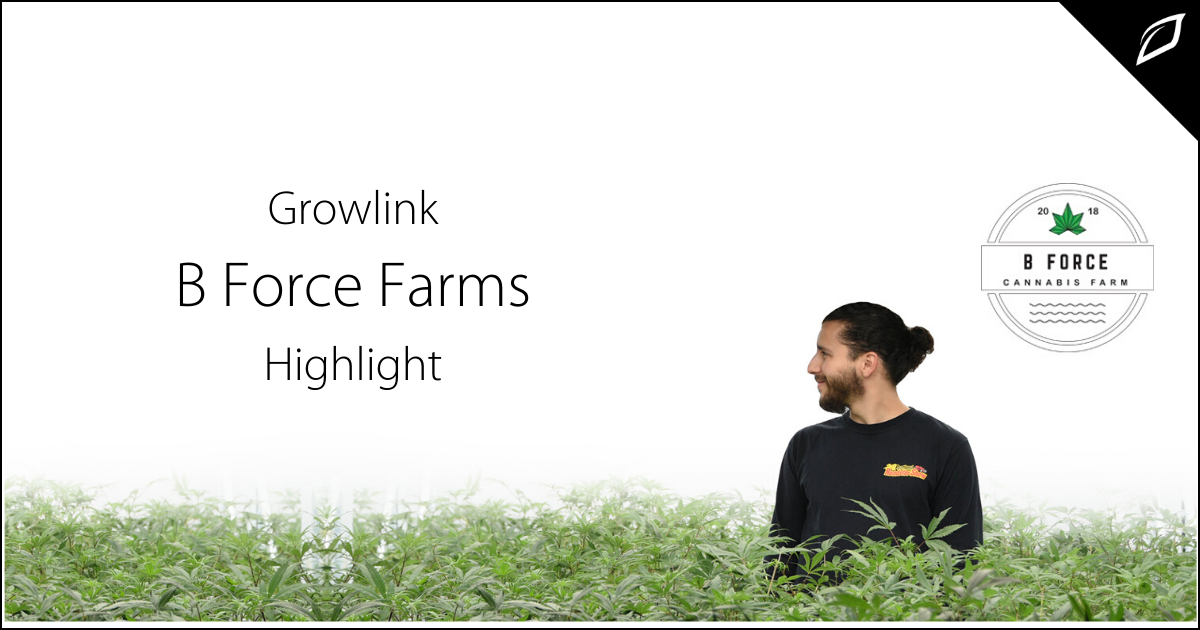What is Fertigation?
The first time I saw the word fertigation, I was confident that it was a typo. Still, after researching and understanding the union of irrigation and...


How Smart Is Your Fertigation System?
AgTech has revolutionized the way crops are grown, both in indoor and traditional growing environments. Controlling environmental factors and agricultural processes with acute precision leads to better crop yields, better resource management, lower costs, and improved environmental conditions. As a result, more and more growers are embracing automation in their operations. One technology that has become extremely popular across various crop types is smart fertigation – the synthesis of fertilization and irrigation.
What Is Fertigation?
Fertigation is the process of injecting fertilizer or other water-soluble products directly into an irrigation system to deliver the exact amount of fertilizer necessary to treat nutrient deficiencies in crops and it's been used as an agriculture technique for a long time. In recent years it’s enjoyed growing popularity among cannabis growers thanks to the many benefits it offers when scaling crops at a commercial level in controlled environments.
What Makes Smart Fertigation Smart?
Utilizing data analytics:
By continually monitoring plant tissue health and nutrient levels, growers can fine-tune their dosages right down to administering micro-doses to ensure ideal nutrient uptake without the risk of deficiencies or overfertilization. The result is healthier plants and increased crop yields. Easy to understand reports provide actionable insights to help drive down costs and increase profit and yield. Visual dashboards display a system’s status and allow you to see which recipe is feeding, and what levels the pH and EC values, flow rates, system pressure, and all your nutrient levels.
Automated precise nutrient dosing:
The primary benefit of smart fertigation is that it allows growers to automatically deliver a precise dosage of nutrients based on the crop type and growing medium. Smart fertigation works well in both soil-based and hydroponic environments. It enables growers to be precise not only in the amounts of fertilizer delivered but also in the timing of that delivery.
Better for the environment:
The chemicals involved in plant fertilization can be extremely harmful to the environment, and fertilizer polluting outside water sources is a serious concern. The most common cause is excess fertilizer exiting the growing environment before the plants can utilize it, and smart fertigation is an ideal way to prevent that from happening.
Smart fertigation systems keep the fertilized irrigation water separate from the outside environment using backflow prevention devices, chemical spill trays, and physical separation from surrounding ground. The ability to dial in exact doses ensures that the system only provides as much fertilizer as the plants can use, significantly reducing the risk of excess chemicals leaching out of the system.
Improved resource usage:
Smart Fertigation improves a grow operation’s resource usage by reducing waste across the entire system. Carefully dialed in nutrient doses eliminate the waste of fertilizer associated with hand mixing and traditional watering, significantly reducing fertilizer costs.
The improved root health enjoyed by plants fed by smart fertigation also means that plants can trap and hold water far more efficiently, reducing the amount of water that needs to be fed through the system. That not only lowers the cost of irrigation but also reduces the impact of indoor agriculture on the overall water supply.
The bottom line:
While smart fertigation systems do require daily maintenance, the labor required to operate them once installed is insignificant compared to the amount of labor saved on manually performing the task. As advances in indoor agriculture advance, the number of growers employing smart fertigation will only continue to increase.

The first time I saw the word fertigation, I was confident that it was a typo. Still, after researching and understanding the union of irrigation and...

Recently, our very own Account Executive Jim Stephens went on-site in the great pacific northwest to visit one of our favorite customers, B Force...

What started as a man tinkering on innovations in his garage in the 1950s turned into a quality company with a profound past and an extremely bright...